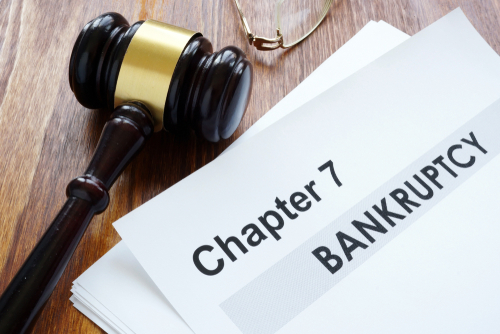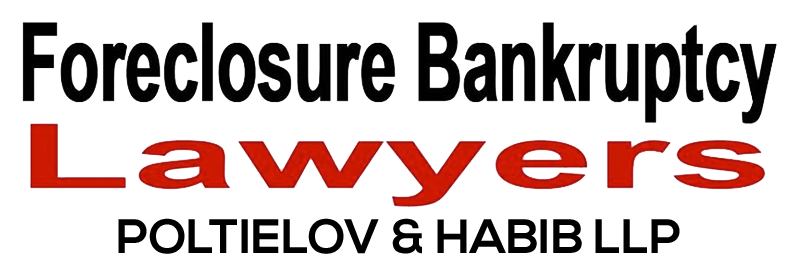
03 Jul What are the Income Limits to File for Chapter 7 Bankruptcy in New York?
Filing for Chapter 7 bankruptcy requires you to meet qualifying income levels. Since bankruptcy courts discharge most if not all debts, it is an option reserved for only the most financially restricted consumers. If you do not qualify for Chapter 7, you can attempt to file under Chapter 13, which requires you to repay a portion of your debts.
Bankruptcy courts assess your income through a bankruptcy means test. The bankruptcy means test is a calculation that determines if your income exceeds mandated thresholds. There are a few ways to qualify outside of having a low total household income.
The good news is that you can get an idea of your eligibility before you even file. Discuss your financial situation with our Chapter 7 bankruptcy lawyer to gather his or her thoughts on the matter. This simple action can help you avoid unnecessary fees and wasted efforts as you proceed.
How the Bankruptcy Means Test Works
Courts use the bankruptcy means test to limit Chapter 7 filings to people with the least financial solvency. Rather than use wages to define the bigger picture, the means test also considers your disposable income. Your disposable income is the money left over after you pay all of your bills and standard living expenses.
Higher disposable income families may not qualify for Chapter 7 bankruptcy. The theory is that your disposable income can repay your debts under a Chapter 13 bankruptcy. The bankruptcy means test only considers personal debt in either case.
Income Requirements to File for Chapter 7 Bankruptcy in New York
You qualify for Chapter 7 if your income is less than the current state median. As of this publication date, the state median is $62,700. If your income is about this amount, then bankruptcy courts scrutinize your financial picture more.
The next test looks at your income, assets, and equity. These are the means by which cash flows into your household. Thereafter, your debt and allowable living expenses are subtracted from your assets. Living expenses include things like:
- Food, Mortgage, Rent, and Clothing
- Healthcare Costs and Expenses
- Household Supplies and Maintenance
- Utilities, Internet, and Cell Phone
- Taxes and Insurance
- Court Ordered Payments
The final number tells a bankruptcy court what your disposable income is. If your disposable income is greater than 25% of your debts, then you likely do not qualify for Chapter 7. For example, let us say you earn $90,000 per year and have $65,000 per year in expenses. That leaves you with a disposable income of $25,000 per year. In order to qualify for bankruptcy, you must carry around $100,000 or more in unsecured debts.
Passing the Chapter 7 Bankruptcy Means Test
Passing the initial bankruptcy means test does not mean you are automatically qualified to file for Chapter 7. Bankruptcy court judges examine the supporting documentation you provided to look at the raw data associated with your finances. He or she could determine that you are able to repay at least part of your debt in a Chapter 13 bankruptcy.
Bear in mind that passing the bankruptcy means test is not indicative that you should file for bankruptcy. Speak with a qualified New York bankruptcy attorney to discuss all of your options from a legal standpoint. He or she may offer other options that are aligned with your goals.
Failing the Chapter 7 Bankruptcy Means Test
If you do not qualify for a Chapter 7 bankruptcy, you may discharge your debts through a Chapter 13 repayment plan. Instead of discharging all of your debts, a judge determines what your monthly payments towards personal debt should be over a three-to-five-year period. This option is attractive to individuals since you do not have to liquidate as many of your assets.
Some people may know in advance that they will meet the income requirements of a Chapter 7 bankruptcy in the near or distant future. Under legal counsel, you might delay filing in order to accurately depict your true financial situation. However, this is an advanced technique that should only be followed if your bankruptcy lawyer advises it.
Discuss Filing for Chapter 7 with a New York Bankruptcy Lawyer First
Your financial future rests on the shoulders of a busy bankruptcy court judge. Creditors all have their say at legal proceedings. Sometimes, the mounting pressure to prevail at hearings is too much for people to even consider. Filing for Chapter 7 bankruptcy is an intimidating process. That is why it is crucial that you at least discuss your case with a lawyer beforehand.
Our New York bankruptcy lawyers proudly serve families throughout Queens and Brooklyn during the entire Chapter 7 process. You can schedule a free consultation by calling our office at (718) 520-0085 or by sending us a quick note through our contact form.


